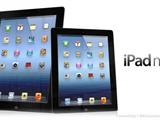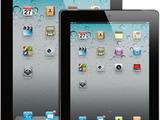Apple has little appeal to first-time smartphone buyers
According to foreign media AllThingsD, although Apple performs very well in the global smartphone market, it is not as dazzling in the eyes of first-time smartphone buyers. A recent study of first-time smartphone buyers and their chosen devices has proven this point.
According to research by Consumer Intelligence Research Partners, the proportion of users who have used smartphones purchasing Apple's iPhone far exceeds that of first-time smartphone buyers. About 50% of experienced smartphone users buy iPhones, while only one-third of first-time smartphone buyers choose iPhones.
The proportion of Samsung chosen by first-time smartphone buyers and experienced users is roughly the same. The most surprising competitor of Samsung from Korea is LG, with a high proportion of first-time smartphone buyers choosing LG. This may be due to its lower price and representation in the prepaid market.
Yes, these late-coming smartphone users are often more sensitive to price and tend to use their devices for a longer time compared to experienced smartphone users.
When these new smartphone users replace their phones again, this consumer mindset may continue. This mindset is good news for some competitors but bad news for Apple because when products are upgraded, both Apple and Samsung rely on over three-quarters of their consumers to repurchase their devices.
Although Apple has been selling older products at low prices, such products can make people aesthetically tired. If, as many people expect, Apple launches a low-end iPhone, price-sensitive users will benefit.
As for these first-time smartphone buyers, they are either very young or relatively old, and their education and income levels are not particularly high (of course, wealthy people aged 25 to 45 also buy these phones).
In the meantime, BlackBerry and Microsoft are also working hard to attract these new smartphone users, especially Microsoft, which has specifically designed its smartphone system to appeal to these new users.
Comment: Besides high profits, Apple needs a low-end iPhone to maintain a high market share
Why does Apple need to launch a low-end iPhone? This is one of the reasons. Some people reading here might not understand why maintaining high profits isn't enough and why there's a need to maintain a high market share through a low-end iPhone?
Indeed, as everyone says, Apple's iPhone profits are very high. According to data, Apple accounted for 53% of global smartphone profits in the second quarter of this year, but the golden era of rapid growth in high-end smartphones has passed, and how long can these high profits last without innovation from Apple? At this point, the importance of maintaining market share through a low-end iPhone becomes apparent, as it not only segments the market and meets the needs of price-sensitive users but more importantly, among the first-time smartphone users, there are quite a few young users. Launching a low-end iPhone can cultivate their user habits and bring more benefits to Apple. Why say that?
Yesterday, I saw an article on BusinessInsider where a user expressed his liking for the second-generation Google Nexus 7 tablet, giving many reasons to buy it, but just one opposing reason made him give up on the Nexus 7. That reason was: his digital life had already been standardized by Apple products. He had been using Macs for six years and iPhones for four years. If he were to replace his iPad with a Google Nexus 7, switching to another platform would not only be unfamiliar but also very inconvenient. In other words, he has already become accustomed to Apple's ecosystem.
Yes, besides maintaining high profits, Apple also needs to launch a low-end iPhone to capture market share and maintain the stability of its ecosystem. Only in this way can it further promote the sales of more Apple products.



